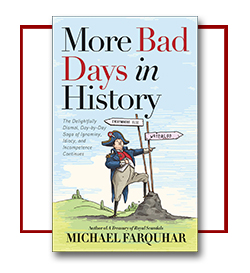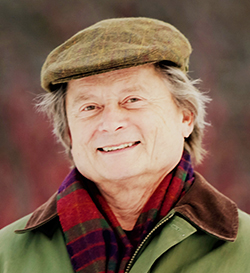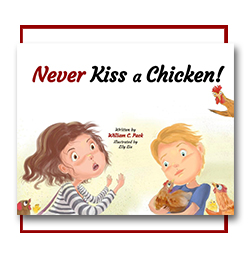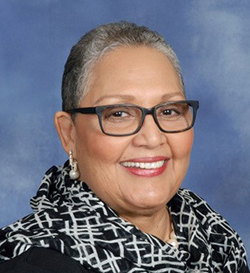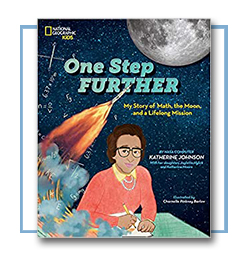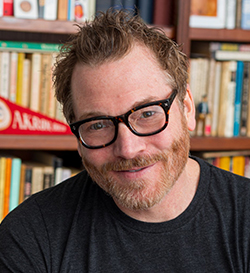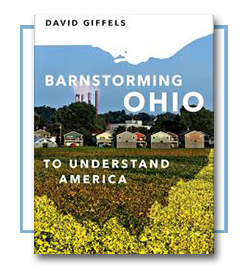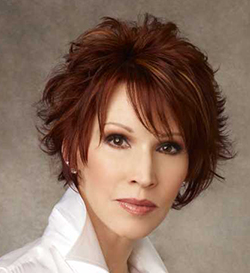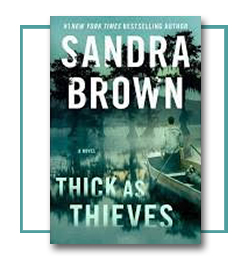
Author and Historical Curator John Rhodehamel
When it comes to the Lincoln assassination, we’ve all heard that John Wilkes Booth was insane orthat he was an alcoholic. But what if the real motivation behind his actions was white supremacy?
John Rhodehamel is the former Archivist of Mount Vernon and the curator of American Historical Manuscripts at the Huntington Library. He’s written several books about George Washington and about Booth. And now he brings us a well researched book called “America’s Original Sin: White Supremacy, John Wilkes Booth and the Lincoln Assassination. It’s the first book to explicitly name white supremacy as the motivation for Lincoln’s assassination.
What brought him to that conclusion? How common was white supremacy back in the day? Does he see any parallels to today’s world? Plus why was Booth so pro-slavery and Lincoln so anti-slavery, and what was the final straw for Booth?
We had a few technical difficulties with the audio of this chat with John Rhodehamel, so we offer you a transcript
of the interview instead. See below.
About John Rhodehamel
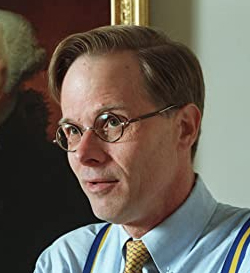
John Rhodehamel is the former archivist of Mount Vernon and curator of American historical manuscripts at the Huntington Library. He is editor of George Washington: Writings and the American Revolution: Writings from the War of Independence, 1775-1783. He lives in Newport Beach, California.
For his book, America’s Original Sin: Click here
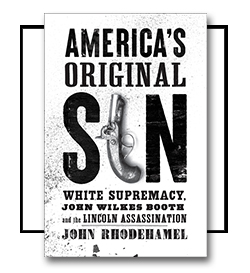
Pam Atherton
John, so very glad to have you with us.
John Rhodehamel
Well, thank you for having me, Pam.
PA
So I guess the first thing is, what is America’s original sin? Where did that phrase come from?
JR
I got it from James Madison, you know, the father of the constitution. In the letter to Lafayette he mentioned, “The dreadful fruitfulness of the Original Sin of the African trade.” But it is by no means an original notion. People have called slavery and white supremacy our republic’s original sin for a long time, since James Madison. And it’s still used. People still refer to it today as America’s original sin. And of course, we’ve had a lot of discussion of that in the news. The 1619 project, of course, naming white supremacy as the leading characteristic of American civilization. I don’t know if I would go that far, but certainly it goes back four hundred years, from the time of the founding.
PA
So when we think about white supremacy, I don’t know that I ever thought of it is any of the reason behind John Wilkes Booth. I mean, of course, we had heard about his alcoholism. And as we find people say, when assassinations or murders happen, “well, he had mental problems. He had mental issues.” And I think, of course, we go that direction. But I’ve heard you say that when it comes to political assassinations, that rarely is it mental illness, that it’s often politically motivated.
JR
Well, I think it’s very true. Most attacks on presidents and presidential candidates take place for political motives. Booth set the pattern when he was the first to assassinate a president, and he was quite explicit in his writing, some of which were published at the time, that his motivation was to preserve white supremacy. He saw Lincoln as a traitor to the white race. He thought emancipation could lead to what they call race-mixing, and a pollution of the so-called white race. Of course, the whole concept of race is completely unscientific, but it’s been an important one and continues to be important.
PA
Right. So give us a little background on John Wilkes Booth. Tell us a little bit about him, how he grew up, and then eventually how he came into his strong beliefs on being pro-slavery and white supremacist.
JR
Lincoln – I think we can say he hated slavery for so long, he couldn’t remember what he didn’t hate it. I think Booth was the same way. It was the same way in that he was for slavery and loved it for so long, he probably couldn’t remember when that started either. It started in childhood. He grew up in slave country. His father, Junius Brutus Booth, was the greatest tragic actor in America, preeminent tragedian for more than 30 years. They lived on a farm in Bel Air, Maryland. That was a slave state. And when he was exposed to a lot of people, most of the people he encountered were enslaved, were oppressed.
From a pretty early age he hated abolitionism. He called abolitionism, the movement to end slavery, treason, and that it would really be a disaster. And as early as when he was 20 years old, he wrote a long 5000 word political statement, in the form of speech. He was explicit in saying this country was formed for the white people, it wasn’t for blacks. Blacks are inferior, slavery is benign, and an important institution in which slaves are well-off, and they’re happy in slavery. None of that was true, of course, but many people believed it.
Booth was not an outsider. Most white Americans in the north as well as the south, 160 years ago WERE white supremacists. I think today, when we speak of white supremacy, it calls to mind extremists, radicals, with nazi views and rifles and body armor and all that kind of stuff. It’s an ideology that I believe, and I hope, Americans today abhor. But 160 years ago, not only was it very common, but the civil science of the time had presumably proven that people of color were inferior to Northern Europeans. And the belief was shared by politicians, clergy, journalists, scientists. It was a consensus that was based on the idea of white supremacy.
PA
So, white supremacy at the time, was a very normal thought process. I mean, it was, in a sense, almost even respected. Versus now where of course we abhor that, hopefully, as you said. But at the time, it was a very normal thought process. So John Wilkes Booth wasn’t crazy in that thought, right?
JR
Not at all. His father, Junius Booth, was an alcoholic, and was authentically nuts, even though he did great things. So that’s part of the reason it was easy to put in a charge of insanity and alcoholism on his son. I think there’s a tendency in American society to deny the importance of politics in assassination, to believe it’s a bolt out of the pathological blue. So yeah, that’s comforting to us. But almost all American assassins except for the guy that killed Garfield, (whose name I can’t pronounce, but he was genuinely crazy), but all the others were acting for political motives, including Lee Harvey Oswald. Booth acted for political motives. He thought he was acting for the white race. And he was astonished, at all the stops for Lincoln’s funeral train, and during the 12 days he was on the run, that in all the newspaper accounts, that most people condemned the assassination. He had thought it would be triumphant. And it’s certainly true that there were hundreds of other men in 1865 who would have been glad to kill Lincoln. It’s just that Booth was the only one who did it. Lincoln was the most detested, most controversial, most hated man in history. Yet the assassination changed that.
PA
So the feeling I got was that if Booth had not assassinated Lincoln, somebody else was going do it. It was just a matter of time. Was that the feeling at the time?
JR
Oh, certainly. Some people around Lincoln felt that he was in very great danger. But they feared he didn’t take them seriously enough. For 19th century men, sort of a cultural thing, the greatest disgrace was cowardice. And of course Lincoln was not a coward. He had been champion brawler of the Indiana and Illinois frontier. He was a champion wrestler, he could beat anyone. And he was very reluctant to take out precautions because he feared it might make him appear cowardly. And he was also fearless. So despite the efforts of some of his friends and subordinates, he did not take the kind of precautions that he should have. So it’s not unlikely that Booth, or someone like him, would find him.
PA
So how did you come to this conclusion now? How did we miss it over all the years? Was it just easier to assume Booth was crazy and an alcoholic?
JR
I think it’s comforting to believe that assassinations are for those reasons. I would say in the historical profession, it hadn’t been missed. And I’m not claiming that this is an original idea. It’s consensus opinion that white supremacy was one of the main motivations. But there’s never been a book that has supported it to the extent that I have. My book is a dual biography of both Lincoln and Booth. And it’s also an analysis and interpretation of white supremacy as it existed in 1865, as well as the history of the Civil War.
PA
Talk about your research because it is a dual biography. And I was fascinated! We grew up learning about Lincoln, we thought we learned everything there was to know. We knew he was poor. But the abject poverty that he lived in was beyond comprehension to me. I had no idea how absolutely poor he was, and how abandoned he was. So what kind of research did you do that brought you all of this wealth of information?
JR
Well, I’ve been working on this for long time. We did a big exhibit – “The Last Best Hope of Earth” – at the Huntington Library in 1993. And I was the sole curator of that exhibition. It was the biography of Lincoln with original documents and manuscripts, some of which were handwritten. And the Huntington had hundreds of manuscripts. And so I’ve been working on this for quite a while. In terms of Lincoln’s impoverished childhood, again, so much of this has been known to people, but none of it was really emphasized.
PA
Well, it’s fascinating to me to learn both and then to realize that Booth was only 26 when all this happened, when he died. Which is really fairly young.
JR
It certainly is. And he achieved success at a very young age. He was one of the most successful actors of his day. He was critically a brilliant actor, as his father had been and his brother Edward was a brilliant actor. He was an action hero, a star. He was a master of stagecraft. He put on very, very exciting performances. And by the time he was in his early 20s, he was making about twenty thousand dollars a year. Over three quarters of a million today, I suppose. He was making good money at a very young age. He was one of the most successful actors. Yeah, he was an action hero. And boy, he was a great ladies man. He was irresistible to women. Things were going very well for him. And he knew that the conspiracy he undertook could end up costing him his life, which it did. He said explicitly that he was willing to die for the south, for the white race, and that’s exactly what he ended up doing.
PA
Wasn’t there like 10 kids in his family? How much of this was his need for attention? Perhaps this was how he was going to make his mark?
JR
Well, I don’t know that it had to do with the size of his family. But he was obsessed with fame. He says, from a very young age, that he had to have fame. And the point is, he wanted major fame, not theatrical celebrity, which he already had. He wanted to go down in history, to be remembered. And he made it clear that even infamy would be acceptable to him. Lasting remembrance. And he certainly did achieve that. Everybody knows his name
PA
An interesting thing I found was at the very end of the book, you’re talking about how one of the things that Booth wanted to do was to destroy Lincoln, and to destroy everything he’d ever done, and make him a footnote of history. When in reality, he did the opposite. Where Lincoln had been unliked, even hated, at that period of time and considered to be a race traitor and not very good at handling what was going on with the country, by his assassination, he made Lincoln this huge martyr.
JR
It is very ironic. Lincoln, too, desired fame, but for doing good things. And ironically, Booth, who is this terrible tyrant, had a lot to do with Lincoln’s canonization. Lincoln was killed on Good Friday. That Easter was called the Black Easter. And many, many sermons preached in the north on Sunday talked about him shedding his blood for the country.
PA
So let’s do that contrast of white supremacy then and white supremacy now. With time did those feelings lessen? Is that why for a long period of time, we didn’t hear quite as much about it? Or has it just taken a different form?
JR
Well, I think it’s greatly diminished in force, and numbers of adherence. There have been a series of enlightenments over the last 160 years, some of which are scientific. Anthropologists have demonstrated that there is just a single human species and that blacks and whites just have different ancestries. So, I think I think part of it is simply people becoming more enlightened with the passage of time. But white supremacy 160 years ago was a majority position. Today, it is very much a minority position with a much small percentage of the population having that ideology..
PA
Although I will say, every day in the news, you’re starting to hear more and more people and politicians talking about supremacy and replacement theory, some not even well-veiled. People have become a little bit more emboldened, I think, to talk about it. I think it’s something that certainly is causing people fear.
JR
Yes it is, And I think we should remember, the Confederacy was specifically founded on white supremacy, and white supremacists today often fly the confederate flag. Surprise, surprise.
PA
The book is called “America’s Original Sin: White Supremacy, John Wilkes Booth and the Lincoln Assassination.” It’s by John Rhodehamel You can find it at bookstores anywhere. And of course, we’ll have a link to it on our website. If you want to find out more about John, you can go to his author’s page on Amazon and we’ll have a link to that as well. John, this is really a deeply researched book. How long did it take you to put it all together?
JR
Well writing the book, which is 420 pages, took a year. But I think I’ve been writing on the assassination one way or the other for more than 30 years,
PA
So it was just kind of the accumulation of all this learning you’ve done over the years.
JR
And I felt this made a contribution. There were a lot of good books on the assassination. And I’ve read most of them. No one had really emphasized the white supremacy before. So I thought of trying to do that,
PA
Right, to draw that that line, that connection. Because I think it is easy for us. We hear this all the time, after mass shootings. “Well, they were mentally ill.” And, you know, maybe that’s not it. And we need to stop using that as a convenient way to place the blame. Maybe we need to look a little deeper. And that’s what you did with this book where you said, “You know what? His white supremacy was deep, and he really believed in it.”
JR
He certainly did. And said so, in his writings. He said, this country was formed for white people and not for black people. They are completely secondary to us. And they are better off in slavery.
PA
I’m so glad that most of us are passed believing any of that kind of stuff. What a detrimental thing that has been to humanity. John, this is really an amazing book, it really helps us to understand, and actually puts us there, with Booth being there with Lincoln. As you said, it’s a dual biography of the two of them. And it helps us to understand them better and to understand the times better, We can’t take their personalities and put them in today’s time, as we understand them. We have to understand what things were like at the time. And you did that for us. So thank you.
JR
Oh, thank you very much, Pam.
 Cy Wakeman’s new book
Cy Wakeman’s new book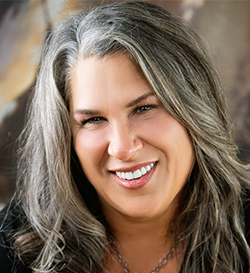
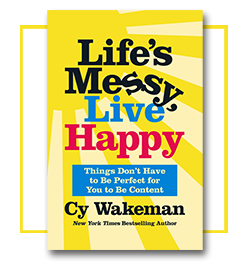

 Pulitzer Prize-Winning Author Michael H. Cottman on
Pulitzer Prize-Winning Author Michael H. Cottman on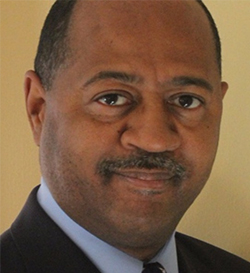
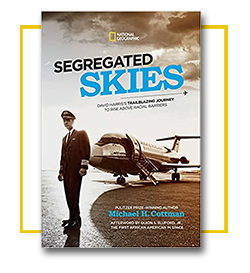

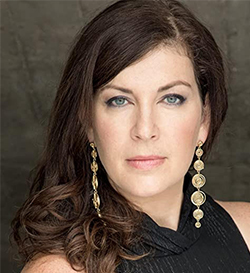
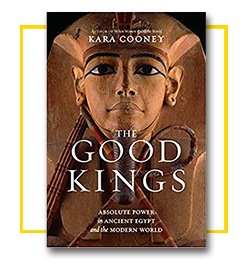




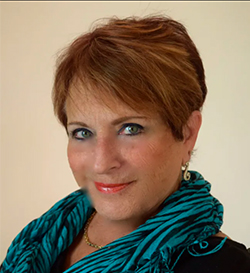
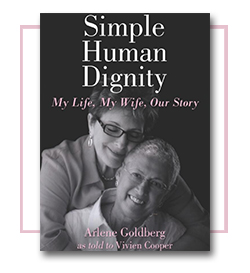
 Think You’ve had a Bad Day?
Think You’ve had a Bad Day?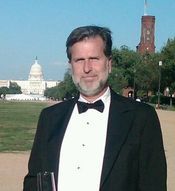 A former writer and editor at The Washington Post, Michael Farquhar is the bestselling author of numerous books, including the critically acclaimed Behind the Palace Doors and Secret Lives of the Tsars, as well as the popular Penguin “Treasury” series: A Treasury of Royal Scandals, A Treasury of Great American Scandals, A Treasury of Deception, A Treasury of Foolishly Forgotten Americans. His latest titles are Bad Days in History: A Gleefully Grim Chronicle of Misfortune, Mayhem, and Misery for Every Day of the Year, and its sequel More Bad Days in History: The Delightfully Dismal, Day-by-Day Saga of Ignominy, Idiocy, and Incompetence Continues. He lives in Washington, D.C.
A former writer and editor at The Washington Post, Michael Farquhar is the bestselling author of numerous books, including the critically acclaimed Behind the Palace Doors and Secret Lives of the Tsars, as well as the popular Penguin “Treasury” series: A Treasury of Royal Scandals, A Treasury of Great American Scandals, A Treasury of Deception, A Treasury of Foolishly Forgotten Americans. His latest titles are Bad Days in History: A Gleefully Grim Chronicle of Misfortune, Mayhem, and Misery for Every Day of the Year, and its sequel More Bad Days in History: The Delightfully Dismal, Day-by-Day Saga of Ignominy, Idiocy, and Incompetence Continues. He lives in Washington, D.C.